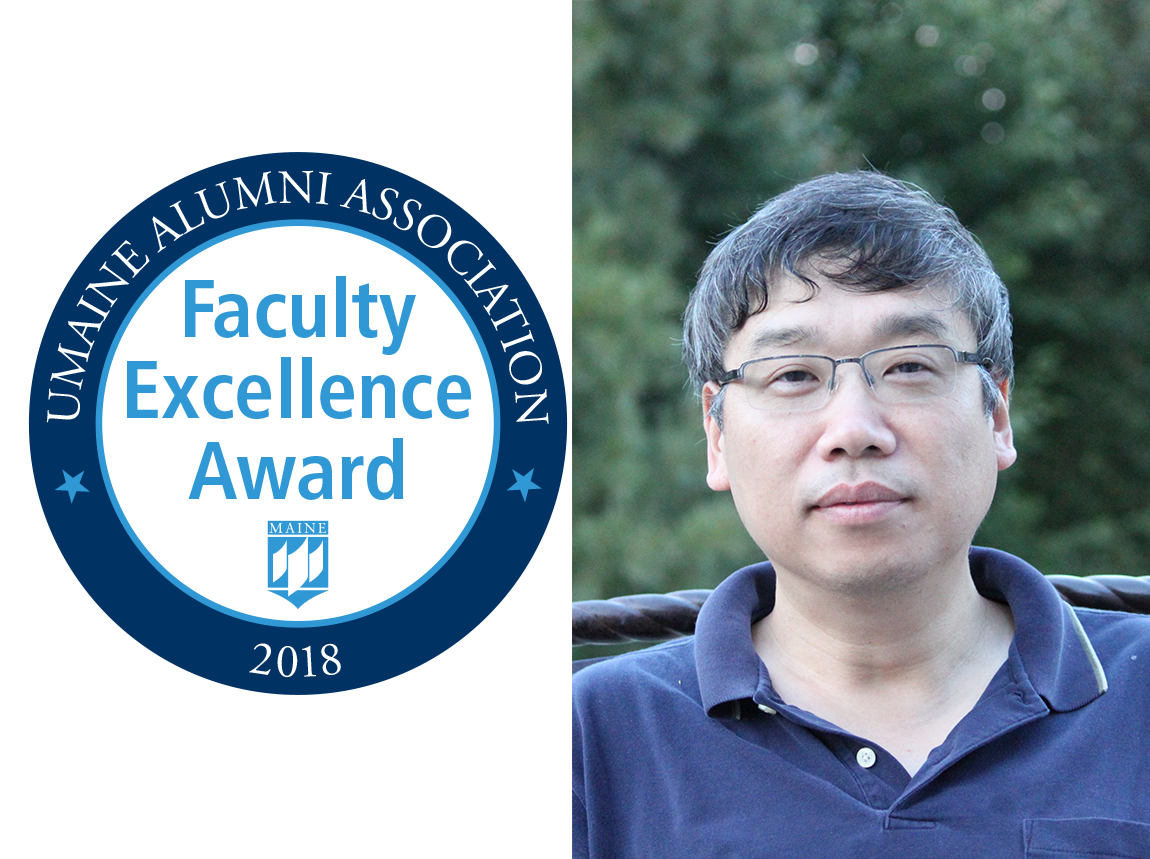It’s no fish story that Prof. Yong Chen’s research on fish populations supports the development of sustainable fisheries in Maine and beyond. The fisheries scientist came to UMaine’s School of Marine Sciences in 2000 after teaching at Memorial University of Newfoundland. Chen uses an interdisciplinary approach in his research, combining biology, ecology, and mathematical and statistical modeling to study fisheries. Chen is the December recipient of the Alumni Association’s Faculty Excellence Award.
In layperson’s terms, what are your academic (teaching, research, scholarship) interests?
My academic interests include assessing how fish populations change over time and space and understanding how these changes can be influenced by environmental conditions and human activity such as commercial and recreational fisheries. Such an understanding is critical for developing sustainable fisheries.
Why did you choose to pursue those interests?
Marine fisheries studies the dynamic interactions between human and natural systems, and thus must be studied with an interdisciplinary approach. I am very interested in interdisciplinary research and want to improve our understanding of fish population dynamics for the development of sustainable fisheries.
What is your most memorable event or experience as a member of the UMaine faculty?
I will not forget the UMaine 2018 convocation. I received the 2018 UMaine Presidential Research and Creative Achievement Award and five of my graduate students were conferred their Ph.D. degrees.
Of all the courses you’ve taught at UMaine, which one do you enjoy the most? Why?
I always enjoy teaching SMS 562 Fisheries Population Dynamics. This is a graduate course that covers designing fisheries monitoring programs, modeling fish life history processes, estimating key fisheries parameters, and modeling fish population dynamics. It is a challenging course for students because it requires quantitative modeling skills and a good understanding of fisheries science. I have enjoyed teaching this course because it is a small class allowing me to have in-depth discussions with graduate students and doing in-class modeling exercises. Most graduate students know why they want to take this course and use what they learn in class in their own research, which makes me feel accomplished as an educator.
What is your favorite place on campus to spend time?
My favorite place on campus is the Memorial Union, where I often meet with my colleagues and students and sometimes get lunch with my wife, who works on campus for the University of Maine System.
Aside from your faculty role, what are your interests or favorite things to do?
I enjoy listening to classical music, cooking, and working around my house. I also spend a lot of time serving as the editor-in-chief for two major international fisheries journals in the world. I enjoy reading and editing people’s work and am glad I have the opportunity to do so.
What advice for students do you have to help them succeed?
My advice is to set up some realistic goals and relevant milestones, and work hard towards them. Speaking from the position of an educator and researcher, I believe finding research and work opportunities is a good way for undergraduate students to gain hands-on experience in their fields of interests. I also encourage students not to be afraid of interacting more with faculty members both academically and socially; we are here to help students, after all.
What advice for new faculty members do you have to help them succeed?
The most important advice I can give to new faculty members is that you need to love what you do and feel good about the contributions you make to teaching, research, and service. Finding a balance between work and family is also very important.
Sponsored by the UMaine Alumni Association and University Credit Union, the Faculty Excellence Award is given monthly to a faculty member whose work contributes to UMaine’s national reputation for excellence. Selections are made in consultation with the university’s academic deans.
